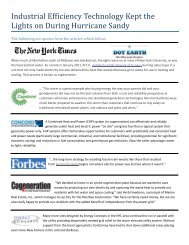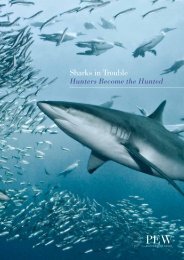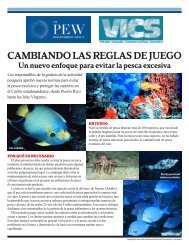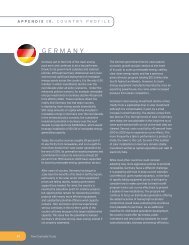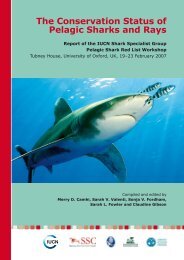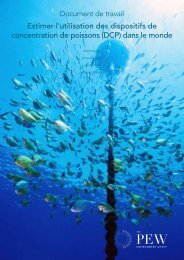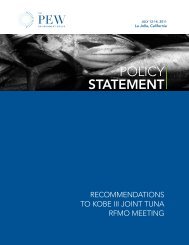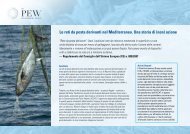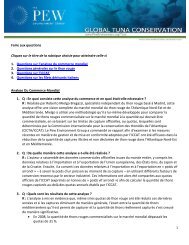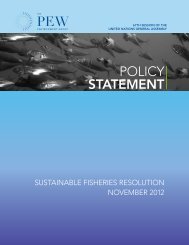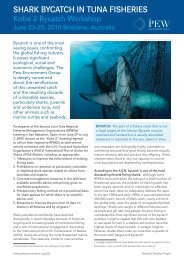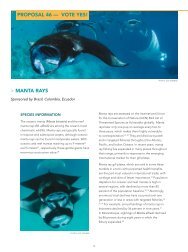The Law That's Saving American Fisheries - Ocean Conservancy
The Law That's Saving American Fisheries - Ocean Conservancy
The Law That's Saving American Fisheries - Ocean Conservancy
Create successful ePaper yourself
Turn your PDF publications into a flip-book with our unique Google optimized e-Paper software.
David Krebs, who fishes for red snapper in the Gulf of Mexico, says “it was really tough fishing”<br />
until catch limits helped to launch the population’s recovery.<br />
Brian Gauvin, www.GAUVINPHOTO.COM<br />
David Krebs<br />
Red snapper fishermen earn ‘conservation returns’<br />
After lobbying to reduce their catch limits a few<br />
years ago to speed red snapper recovery, Gulf of<br />
Mexico commercial fishermen earned a conservation<br />
return in 2012: <strong>The</strong> allowable catch climbed 7 percent to<br />
just over 8 million pounds, the fourth year in a row that an<br />
increase occurred.<br />
“Fishermen should continue to see bigger fish and larger<br />
catches as the population rebounds,” said Sam Rauch, NOAA’s<br />
fisheries director, in announcing the increase.<br />
Giving the fish a break helped the fishery climb out of trouble.<br />
“By the time we got to the 2006 season, we could barely<br />
fill the commercial quota. It was really tough fishing,” says<br />
David Krebs, past president of the Gulf of Mexico Reef Fish<br />
Shareholders Alliance.<br />
<strong>The</strong> snapper population was in rough shape at the time. Heavy<br />
fishing pressure, including the losses of juveniles taken as<br />
bycatch, had taken a toll. Red snapper was officially classified<br />
as overfished in 1988; disputes over how to rebuild it went on<br />
for more than a decade, eventually reaching the courts. <strong>The</strong><br />
Coastal Conservation Association, representing recreational<br />
anglers, sued to reduce bycatch of snappers in shrimp trawls,<br />
and efforts to reduce that incidental impact continue today.<br />
Meanwhile, commercial fishermen in the alliance figured it<br />
made sense to cut their catch in order to speed recovery of<br />
the stock—and their own future earnings. “It was basically like<br />
putting your money in the bank and letting it compound,” says<br />
Donny Waters, a Pensacola, FL-based fisherman and former<br />
president of the alliance.<br />
<strong>The</strong>y took their case to the Gulf of Mexico Fishery<br />
Management Council, to NOAA, and even to Congress, and<br />
they prevailed. With support from other fishing organizations<br />
and individuals, and a 2007 ruling by a federal judge that the<br />
current rebuilding plan violated the Magnuson-Stevens Act,<br />
a science-based rebuilding program was implemented in<br />
2008 that has successfully ended overfishing and begun the<br />
recovery process.<br />
18 It’s a Keeper



